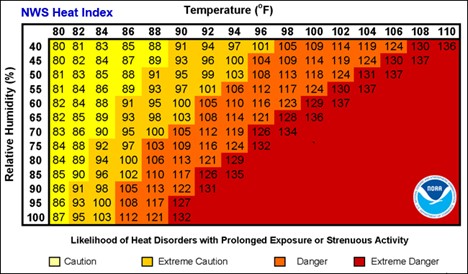Navigating Summer Heat
July 10, 2024With sun and summer comes the dreaded heat and the potential for heat-related illness
Every year, as summer returns, Idahoans head outdoors for rest, relaxation, or exercise. With sun and summer comes the dreaded summer heat, and the potential for heat-related illness or injury such as sunburn or heat stroke. However, proper preparation, planning, and recognition and treatment of heat-related illness or injury can help ensure a positive experience.
Proper hydration is the key to ensuring an enjoyable time in the outdoors in the summer heat. While each person is different in how much they need to consume to remain hydrated, the general rule of thumb is urinating in a normal and consistent manner, with a very light to clear colored urine is ideal. Drinking cold water and sports drinks are better than drinks containing caffeine or alcohol, as they are both diuretics and can lead to further dehydration.
A good measure of heat stress on the body is the heat index, also known as apparent temperature. The heat index is a measurement of both ambient temperature and relative humidity and is a valuable reference for evaluating whether to delay, modify, or cancel outdoor activities. For reference, the National Weather Service Heat Index chart is shown to the right.

Limit exposure time during the peak heat of the day and monitor environmental conditions to decide whether to modify or cancel planned outdoor activities. Our body cools itself via sweat evaporation. When the temperature is hot, and we are dehydrated, it significantly reduces the body’s natural ability to regulate its temperature. If someone has stopped sweating and they are warm to the touch, this is a sign that they potentially are in heat stroke, a true medical emergency.
Finally, despite proper planning and precautions, you may find yourself or someone else experiencing a summer heat-related emergency. Rapid cooling is key to producing the best recovery outcome. This should be followed by emergency medical services for advanced care. Packing the armpits, groin, and around the head with ice will greatly aid cooling in someone who is suffering from summer heat illness or heat stroke.

